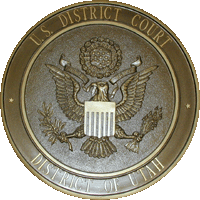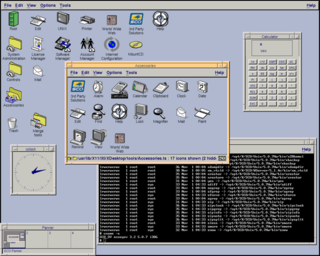
Novell, Inc. was an American software and services company headquartered in Provo, Utah, that existed from 1980 until 2014. Its most significant product was the multi-platform network operating system known as Novell NetWare.
Darl Charles McBride is an entrepreneur and CEO of Shout TV Inc. McBride is known as the former CEO of The SCO Group. On March 7, 2003, during McBride's tenure as CEO of the company, The SCO Group initiated litigation against IBM, alleging breach of contract and copyright infringement claims connected to Unix. SCO Group lost in a series of court battles, and was eventually forced into bankruptcy.

SCO Group, Inc. v. International Business Machines Corp., commonly abbreviated as SCO v. IBM, is a civil lawsuit in the United States District Court of Utah. The SCO Group asserted that there are legal uncertainties regarding the use of the Linux operating system due to alleged violations of IBM's Unix licenses in the development of Linux code at IBM. The lawsuit was filed in 2003, it has lingered on through the bankruptcy of SCO Group and the adverse result in SCO v. Novell, and was reopened for continued litigation by order of a new judge on June 14, 2013. Pursuant to the court order reopening the case, an IBM Motion for Summary Judgment was filed based upon the results of the Novell decision. On December 15, 2014, the judge granted most of IBM's motion, thereby narrowing the scope of the case, which remained open. On March 1, 2016, following a ruling against the last remaining claims, the judge dismissed SCO's suit against IBM with prejudice. SCO filed an appeal later that month. In February 2018, as a result of the appeal and the case being partially remanded to the circuit court, the parties restated their remaining claims and provided a plan to move toward final judgement.

The SCO Group was an American software company in existence from 2002 to 2012 that became known for owning Unix operating system assets that had belonged to the Santa Cruz Operation, including the UnixWare and OpenServer technologies, and then, under CEO Darl McBride, pursuing a series of high-profile legal battles known as the SCO-Linux controversies.

Caldera International, Inc., earlier Caldera Systems, was an American software company that existed from 1998 to 2002 and developed and sold Linux- and Unix-based operating system products.

The Santa Cruz Operation, Inc. was an American software company, based in Santa Cruz, California, that was best known for selling three Unix operating system variants for Intel x86 processors: Xenix, SCO UNIX, and UnixWare.

UnixWare is a Unix operating system. It was originally released by Univel, a jointly owned venture of AT&T's Unix System Laboratories (USL) and Novell. It was then taken over by Novell. Via Santa Cruz Operation (SCO), it went on to Caldera Systems, Caldera International, and The SCO Group before it was sold to UnXis. UnixWare is typically deployed as a server rather than a desktop. Binary distributions of UnixWare are available for x86 architecture computers. UnixWare is primarily marketed as a server operating system.

Unix System V is one of the first commercial versions of the Unix operating system. It was originally developed by AT&T and first released in 1983. Four major versions of System V were released, numbered 1, 2, 3, and 4. System V Release 4 (SVR4) was commercially the most successful version, being the result of an effort, marketed as Unix System Unification, which solicited the collaboration of the major Unix vendors. It was the source of several common commercial Unix features. System V is sometimes abbreviated to SysV.

Unix System Laboratories (USL), sometimes written UNIX System Laboratories to follow relevant trademark guidelines of the time, was an American software laboratory and product development company that existed from 1989 through 1993. At first wholly, and then majority, owned by AT&T, it was responsible for the development and maintenance of one of the main branches of the Unix operating system, the UNIX System V Release 4 source code product. Through Univel, a partnership with Novell, it was also responsible for the development and production of the UnixWare packaged operating system for Intel architecture. In addition it developed Tuxedo, a transaction processing monitor, and was responsible for certain products related to the C++ programming language. USL was based in Summit, New Jersey, and its CEOs were Larry Dooling followed by Roel Pieper.
In a series of legal disputes between SCO Group and Linux vendors and users, SCO alleged that its license agreements with IBM meant that source code IBM wrote and donated to be incorporated into Linux was added in violation of SCO's contractual rights. Members of the Linux community disagreed with SCO's claims; IBM, Novell, and Red Hat filed claims against SCO.

SCO v. Novell was a United States lawsuit in which the software company The SCO Group (SCO), claimed ownership of the source code for the Unix operating system. SCO sought to have the court declare that SCO owned the rights to the Unix code, including the copyrights, and that Novell had committed slander of title by asserting a rival claim to ownership of the Unix copyrights. Separately, SCO was attempting to collect license fees from Linux end-users for Unix code through their SCOsource division, and Novell's rival ownership claim was a direct challenge to this initiative. Novell had been increasing their investments in and support of Linux at this time, and was opposed to SCO's attempts to collect license fees from Novell's potential customers.
Beginning in 2003, The SCO Group was involved in a dispute with various Linux vendors and users. SCO initiated a series of lawsuits, the most known of which were SCO v. IBM and SCO v. Novell, that had implications upon the futures of both Linux and Unix. SCO claimed that Linux violated some of SCO's intellectual properties. Many industry observers were skeptical of SCO's claims, and they were strongly contested by SCO's opponents in the lawsuits, some of which launched counter-claims. By 2011, the lawsuits fully related to Linux had been lost by SCO or rendered moot and SCO had gone into bankruptcy. However the SCO v. IBM suit continued for another decade, as it included contractual disputes related to both companies' involvement in Project Monterey in addition Linux-related claims. Finally in 2021 a settlement was reached in which IBM paid the bankruptcy trustee representing what remained of SCO the sum of $14.25 million.

Xinuos OpenServer, previously SCO UNIX and SCO Open Desktop, is a closed source computer operating system developed by Santa Cruz Operation (SCO), later acquired by SCO Group, and now owned by Xinuos. Early versions of OpenServer were based on UNIX System V, while the later OpenServer 10 is based on FreeBSD 10.
Merge is a software system which allows a user to run DOS/Windows 3.1 on SCO UNIX, in an 8086 virtual machine.

The history of Unix dates back to the mid-1960s, when the Massachusetts Institute of Technology, AT&T Bell Labs, and General Electric were jointly developing an experimental time-sharing operating system called Multics for the GE-645 mainframe. Multics introduced many innovations, but also had many problems. Bell Labs, frustrated by the size and complexity of Multics but not its aims, slowly pulled out of the project. Their last researchers to leave Multics – among them Ken Thompson, Dennis Ritchie, Doug McIlroy, and Joe Ossanna – decided to redo the work, but on a much smaller scale.
eDirectory is an X.500-compatible directory service software product from NetIQ. Previously owned by Novell, the product has also been known as Novell Directory Services (NDS) and sometimes referred to as NetWare Directory Services. NDS was initially released by Novell in 1993 for Netware 4, replacing the Netware bindery mechanism used in previous versions, for centrally managing access to resources on multiple servers and computers within a given network. eDirectory is a hierarchical, object oriented database used to represent certain assets in an organization in a logical tree, including organizations, organizational units, people, positions, servers, volumes, workstations, applications, printers, services, and groups to name just a few.
Caldera OpenLinux (COL) is a defunct Linux distribution. Caldera originally introduced it in 1997 based on the German LST Power Linux distribution, and then taken over and further developed by Caldera Systems since 1998. A successor to the Caldera Network Desktop put together by Caldera since 1995, OpenLinux was an early "business-oriented distribution" and foreshadowed the direction of developments that came to most other distributions and the Linux community generally.
Linux began in 1991 as a personal project by Finnish student Linus Torvalds to create a new free operating system kernel. The resulting Linux kernel has been marked by constant growth throughout its history. Since the initial release of its source code in 1991, it has grown from a small number of C files under a license prohibiting commercial distribution to the 4.15 version in 2018 with more than 23.3 million lines of source code, not counting comments, under the GNU General Public License v2.

SCO Forum was a technical computer conference sponsored by the Santa Cruz Operation (SCO), briefly by Caldera International, and later The SCO Group that took place during the 1980s through 2000s. It was held annually, most often in August of each year, and typically lasted for much of a week. From 1987 through 2001 it was held in Santa Cruz, California, on the campus of the University of California, Santa Cruz. The scenic location, amongst redwood trees and overlooking Monterey Bay, was considered one of the major features of the conference. From 2002 through 2008 it was held in Las Vegas, Nevada, at one of several hotels on the Las Vegas Strip. Despite the name and location changes, the conference was considered to be the same entity, with both the company and attendees including all instances in their counts of how many ones they had been to.














